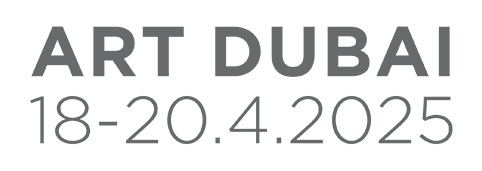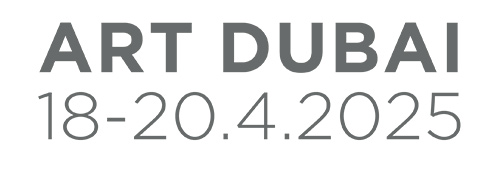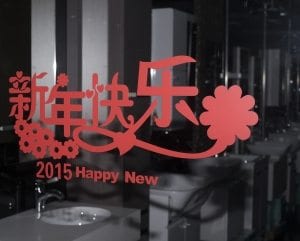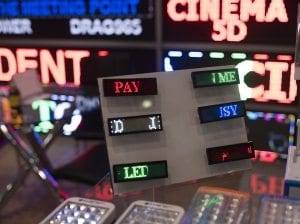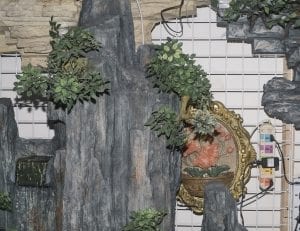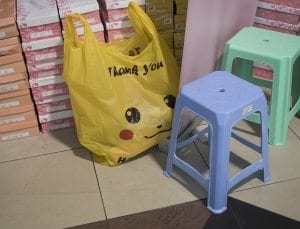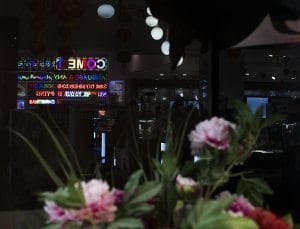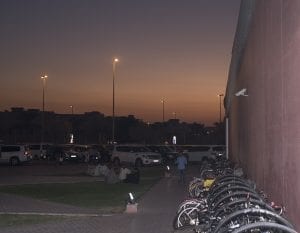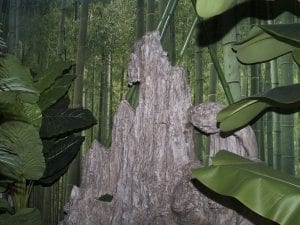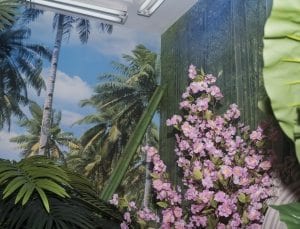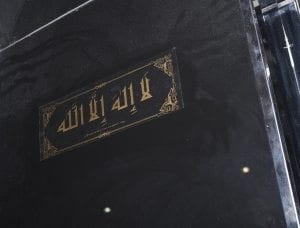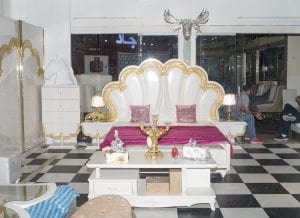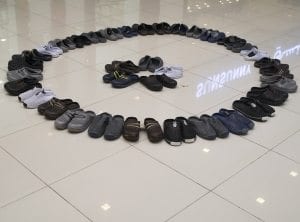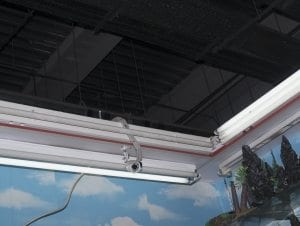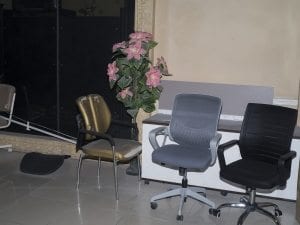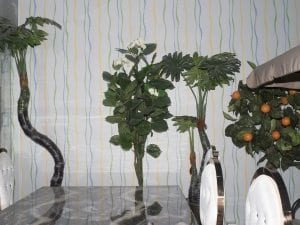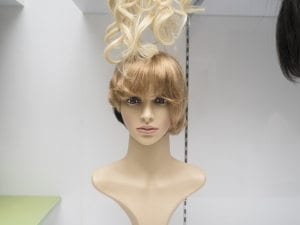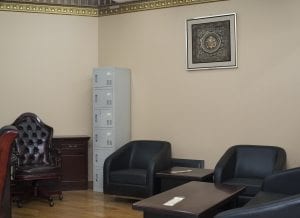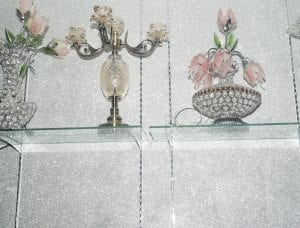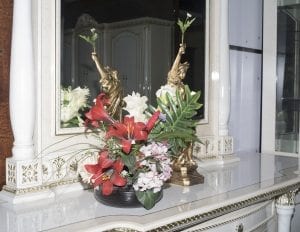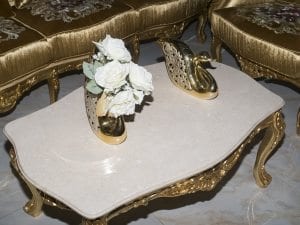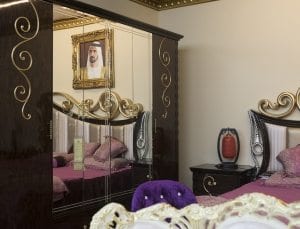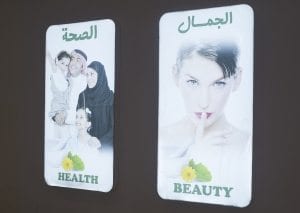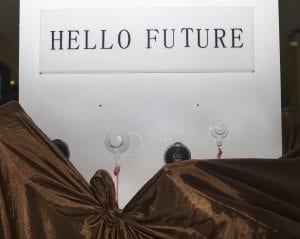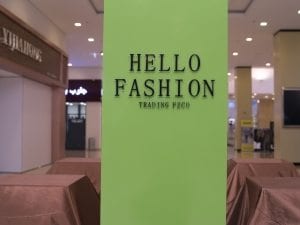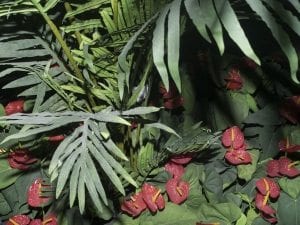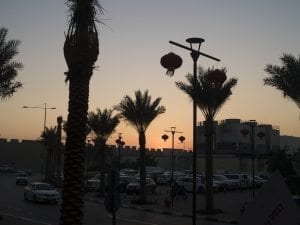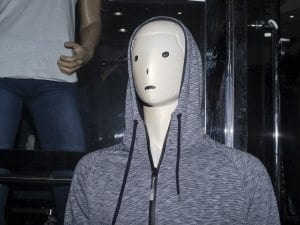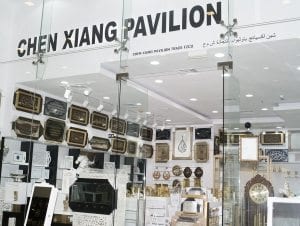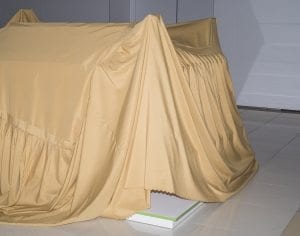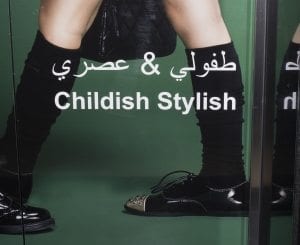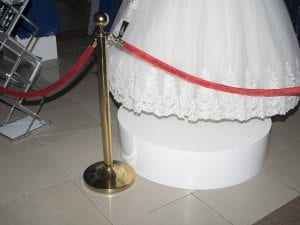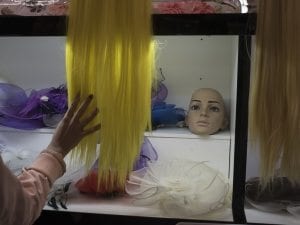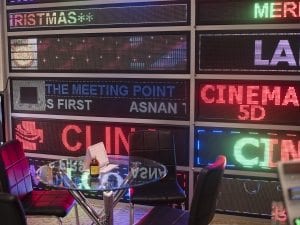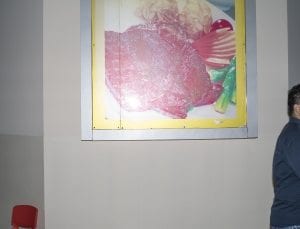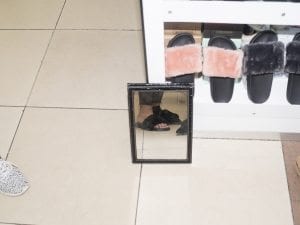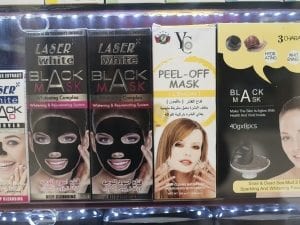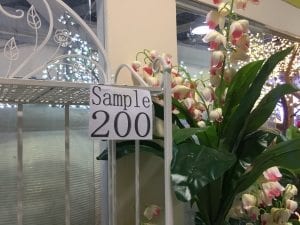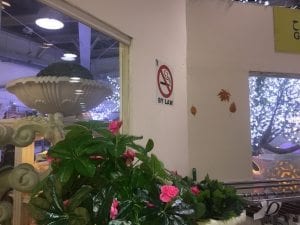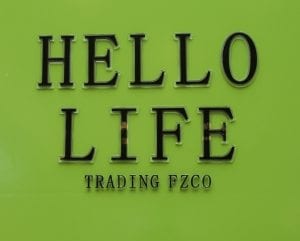Wael Al Awar founded ibda design (Dubai + Tokyo) in 2009. He has a multi-disciplinary approach to design and he is always looking to challenge conventional processes pushing the boundaries of architecture. Ibda design is responsible for numerous key projects shaping the design, art and architecture platform in the GCC; one of which is Hai d3.
Myrna Ayad is Fair Director of Art Dubai. An independent arts writer, editor and consultant, she has been based in the UAE for over 30 years, and has written prolifically for publications including The New York Times, The Art Newspaper, Artsy, Artforum, Artnet and The National among others. Ayad published books on major collections and art movements in the UAE and Saudi Arabia, and was previously Editor of Canvas, a leading magazine for art and culture from the Middle East and Arab world. @MyrnaAyad
Ahmed Mater is an artist and physician, who studied at King Khalid University in Abha. He uses photography, film, and performance to entwine expressive and politically engaged artistic aims with the scientific objectives of his medical training, blending conceptual art tactics with an investigation into traditional Ismalic aesthetics.
Stephanie Bailey is Ibraaz Senior Editor, Ocula Editor-at-large, and a contributing editor to LEAP and ART PAPERS. She also writes regularly for ArtForum, and Yishu Journal of Contemporary Chinese Art, and is a member of the Naked Punch Review editorial committee. She currently programmes the Conversations and Salon at Art Basel Hong Kong.
Omar Berrada is a writer, translator, curator, and director of Dar al-Ma’mûn. He is currently working on trans-Saharan migrations and racial dynamics in Morocco, as well as on the archive of writer and filmmaker Ahmed Bouanani. He was a co-director of the Global Art Forum in 2014, and is guest curator of the 2017 Abraaj Group Art Prize.
Christo fled communist Bulgaria in 1956, and met his late wife Jeanne-Claude in Paris in 1958. By 1964 they were living and working in New York City, creating monumental works on a huge scale. Christo and Jeanne-Claude’s relationship with the UAE goes back to 1979 when they visited the then young country, and began what has been a longstanding friendship with the region.
Cinema Akil is an independent cinema platform that brings quality films from across the world to the audiences in Dubai. Showcasing directors and filmmakers across the decades, it aims to create awareness and interest in film and the cinematic arts. Launched in 2014, Cinema Akil has held nearly 30 pop-up cinemas around Dubai, Abu Dhabi and Sharjah. @CinemaAkil
Mariam Wissam Al Dabbagh has worked in cultural production and strategy for the last 14 years in the UAE. A writer and researcher on diaspora, identity politics and migration, and has published essays both academically and in press on mediated identities and migration in Iraq and the UAE. Maryam is also the founder of Ila Al Amam, a boutique content and cultural consultancy agency in the UAE. @maryamwd
As an artist, Iftikhar Dadi has collaborated with Elizabeth Dadi for 20 years. Their work is frequently realised in large-scale installations and has been exhibited widely. Dadi is also associate professor in Cornell University’s Department of History of Art, and author of numerous books and essays on art.
William Dalrymple is a writer and historian. Interests include the history and art of India, Pakistan, Afghanistan, the Middle East, the Muslim world, Hinduism, Buddhism, the Jains and early Eastern Christianity. His latest book is The Anarchy: India Between Empires 1739-1803. Other titles include From the Holy Mountain: A Journey Among the Christians of the Middle East; Nine Lives: In Search of the Sacred in Modern India; The Last Mughal; and Return of a King: The Battle of Afghanistan. Dalrymple is also co-founder and co-director of the annual Jaipur Literary Festival. @DalrympleWill
Catherine David is a renowned curator and art historian, with extensive experience in the Middle East, currently, deputy director of the Musée National d’Art Moderne at the Centre Pompidou Paris. Previously, she has served as curator at the National Gallery Jeu de Paume in Paris, chief curator of the Musées de France, and Artistic Director of Documenta X, Kassel (1994-97).
Clare Davies serves as Assistant Curator, Modern and Contemporary Art, Middle East, North Africa and Turkey at the Metropolitan Museum of Art, New York. She has worked as a writer, researcher and curator in the Middle East since 2006 and completed a doctoral dissertation on Modern Egyptian art at the Institute of Fine Arts, NYU in 2014. She was the recipient of the inaugural Irmgard Coninx Prize for Transregional Studies (2014/2015).
Tishani Doshi is an award-winning poet, novelist and dancer. She has published five books of fiction and poetry. Her most recent book is The Adulterous Citizen (poems, stories, essays). Since 2001 she has worked with the Chandralekha dance troupe. She lives on a beach in Tamil Nadu.
Jane Anna Gordon teaches at the University of Connecticut where she directs the graduate programme in Political Science. She is the author of, among other books, Creolizing Political Theory: Reading Rousseau through Fanon and co-editor (with Neil Roberts) of Creolizing Rousseau and (with Lewis R. Gordon, Aaron Kamugisha, and Neil Roberts) of Journeys in Caribbean Thought: The Paget Henry Reader. She is President of the Caribbean Philosophical Association and currently completing a manuscript entitled When Women Do Political Theory.
Paul Griffiths is CEO of Dubai Airports, with the responsibility for the operation and development of DXB and DWC. Prior to moving to Dubai, he served as Chairman and MD of London Gatwick and was Board Director of the Virgin Travel Group. Paul is a Fellow and Council member of the Royal College of Organists, Chairman of the Executive Committee and a VP of the Royal College. In commemoration of his services to British prosperity in the UAE and to music, Paul became a CMG in 2015.
Tulip Hazbar is a UAE based designer and visual artist, working with a variety of mediums such as print media, publications, illustration, found objects, and installations. Hazbar’s work stems from the process of collecting tangible and intangible miscellanea. Her practice revolves around reconstructing memories and finding answers to questions on value, transience and permanence. @tuliphazbar
Dr N. Janardhan is an Indian political analyst based in the UAE since 2000. His publications include A New Gulf Security Architecture: Prospects and Challenges for Asia. He is also Honorary Fellow, University of Exeter, and Managing Assistant Editor of the Journal of Arabian Studies.
Laleh Khalili is a professor of Middle East politics and the author of Heroes and Martyrs of Palestine (2007) and Time in the Shadows (2013). She is currently working on a project on ports and maritime logistics in the Arabian Peninsula. @lalehkhalili
Kristine Khouri is an independent researcher and writer based in Beirut, Lebanon. Her research interests focus on the history of arts circulation and infrastructure in the Arab world. She most recently co-curated Past Disquiet: Narratives and Ghosts from the International Art Exhibition for Palestine, Beirut, 1978 at the Haus der Kulturen Der Welt, Berlin (2016). @kristinekhouri
Ahmed Mater is an artist and physician, who studied at King Khalid University in Abha. He uses photography, film, and performance to entwine expressive and politically engaged artistic aims with the scientific objectives of his medical training, blending conceptual art tactics with an investigation into traditional Ismalic aesthetics. @AhmedMater
Oscar Murillo’s paintings, video works, and performances are tied to a notion of community stemming from the artist’s cross-cultural ties to London, where he currently lives and works, and Colombia, where he was born in 1986. Murillo has participated in numerous international solo and group exhibitions. In 2012 he began his long-term project Frequencies, which debuted with a large-scale installation of canvases as part of the 56th Venice Biennale: All the World’s Futures in 2015.
Emeka Ogboh’s works contemplate broad notions of listening and hearing as its main focus. He transposes, inserts, and installs sounds in diverse locations to contemplate compelling issues surrounding migration and globalization amongst other topics. He is the cofounder of the Video Art Network Lagos and winner of the 2016 Prize of the Bottcherstraße.
James Onley specialises in the history, heritage, culture, and society of the Gulf and its historical connections with India. He is the author of The Arabian Frontier of the British Raj (OUP, 2007), among many other publications, and is the founding Editor of the Journal of Arabian Studies.
Trevor Paglen is an artist whose work spans image-making, sculpture, investigative journalism, writing, engineering, and numerous other disciplines. Among his chief concerns are learning how to see the historical moment we live in and developing the means to imagine alternative futures. @trevorpaglen
Farah Al Qasimi is an artist and musician. Farah studied photography and music at Yale University, New Haven, Connecticut, and is currently an MFA candidate in the Photography program at the Yale School of Art. Most recently, she participated in the Sheikha Salama Foundation and Rhode Island School of Design Emerging Artist Fellowship. Shows include the first Biennial for Arab Photography at Institut du Monde Arabe, Paris; Emirati Expressions at Manarat al Saadiyat, Abu Dhabi; Walls and Margins at the Barjeel Art Foundation, Sharjah; Accented at Maraya Art Center, Sharjah; and The World is Sinking at The Third Line, Dubai.
Sultan Sooud Al-Qassemi is a United Arab Emirates-based columnist and commentator on Arab affairs. His articles have appeared in the Financial Times, the New York Times and Foreign Policy, among other notable publications. Al-Qassemi is an MIT Media Labs Director’s Fellow. He has been named on Arabian Business’s “World’s 100 Most Powerful Arabs” list in 2014, and TIME magazine’s “140 Best Twitter Feeds of 2011.” Al-Qassemi is also the founder of the Barjeel Art Foundation, established to contribute to intellectual development in the Arab region. @SultanAlQassemi
Todd Reisz is an architect and writer. He is also the Rose Visiting Assistant Professor at Yale University School of Architecture, where he teaches courses in urbanism and Gulf urban history. He is currently writing a book about Dubai’s early modernisation through the lens of architecture. @toddreisz
Uzma Z. Rizvi is Associate Professor of Anthropology and Urban Studies at the Pratt Institute of Art and Design, Brooklyn, NY. She is a Visiting Scholar at the American University of Sharjah (AUS). Rizvi (with Amal Khalaf) directed GAF 10 and is one of the lead tutors (with Murtaza Vali and Lee Xie) for Campus Art Dubai 5.0.
Mohammad Salemy is an independent New York-based artist, critic, and curator who holds an MA in critical curatorial studies from the University of British Columbia. He has shown his works in Ashkal Alwan’s Home Works 7 (Beirut) and Witte de With (Rotterdam). His writings have been published in e-flux, Flash Art, Third Rail, and Brooklyn Rail. Salemy’s curatorial experiment For Machine Use Only was included in the 11th Gwangju Biennale.
Noura Al Sayegh is an architect and curator currently working at the Bahrain Authority for Culture and Antiquities (BACA) as Head of Architectural Affairs, where she is responsible for overseeing the planning and implementation of cultural institutions and museums as well as the creation of an active agenda of exhibitions and academic exchange initiatives.
Recognised as a mentor to Saudi artists, Hamza Serafi (b.1960, Jeddah) has been instrumental in promoting and cultivating the art scene in the Kingdom since the early 1980s through the staging and curating of exhibitions and contributing to the formation of several private and corporate collections in Saudi Arabia. A co-founder of Athr Gallery, established in 2009 and known as one of the most progressive art spaces in the Kingdom, the gallery extends beyond the commercial realm by taking on educational roles all in the name of cultivating a greater appreciation for the arts. In 2014, Serafi became a founding member of the Saudi Art Council, a civil society initiative to support art and culture in Saudi Arabia.
shments.
Dr Nada Shabout is a Professor of Art History and the Director of the Contemporary Arab and Muslim Studies Initiative (CAMCSI) at the University of North Texas. The founding president of the Association for Modern and Contemporary Art from the Arab World, Iran and Turkey (AMCA), she is currently co-editing with Anneka Lenssen and Sarah Rogers, Modern Art of the Arab World: Primary Documents, part of the International Program at the Museum of Modern Art, New York, 2017.
The artist collective Slavs and Tatars was founded in 2006. A mid-career survey of their work, commissioned by CCA Ujazdowski, Warsaw will travel to the Pejman Foundation, Tehran; Salt, Istanbul; CAC Vilnius; MOCA, Belgrade; and Albertinum, Dresden through early 2018.
Neha Vora is an anthropologist whose research focuses on citizenship, migration, Diaspora, Indian Ocean circulations, political economy, and higher education in the Arabian Peninsula. Her first book, Impossible Citizens: Dubai’s Indian Diaspora was published in 2013 by Duke University Press. She is currently completing her second monograph, an ethnography of Qatar’s Education City.
